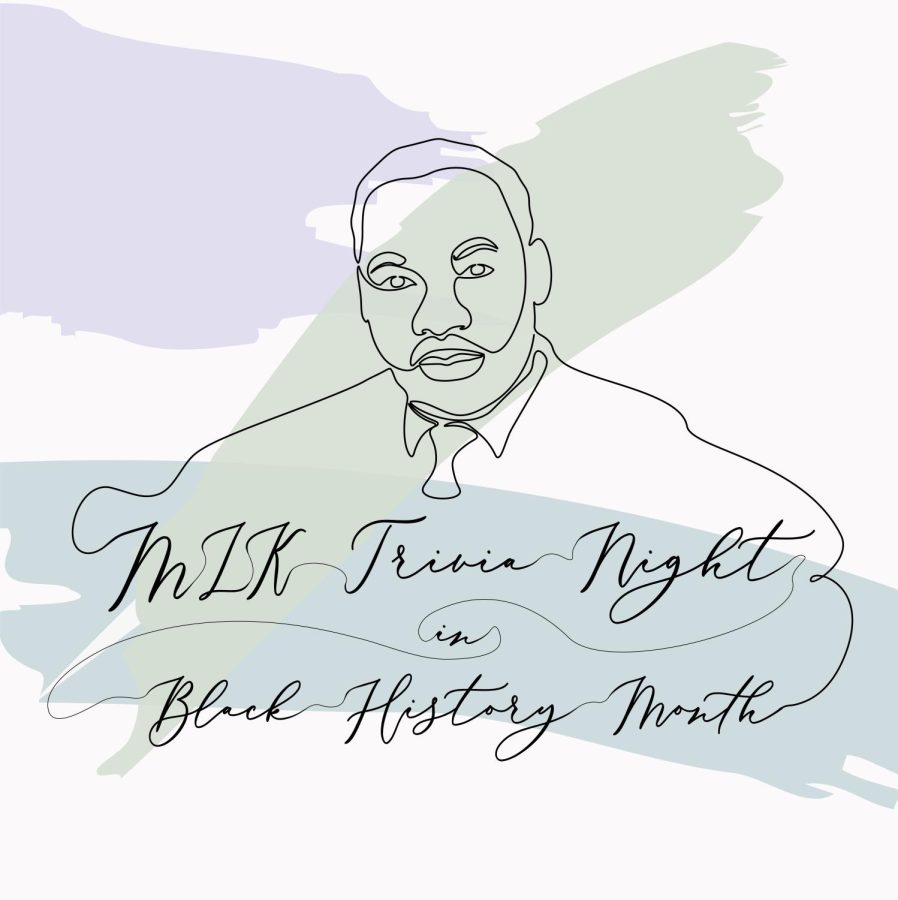Ready to test your knowledge of Black History Month?
MLK program promotes Black history with global campus trivia night
Final 2022 MLK programming event highlights Black History with Global Campus event.
March 3, 2022
Last Friday, WSU held an online MLK Trivia Night. This event was part of the Global Connections 2022 MLK programming.
Host Andrea Jimenez, program coordinator for Global Connections, asked questions about Martin Luther King Jr. and put attendees into breakout rooms for discussion. She asked questions such as “Where did MLK give his famous ‘I Have a Dream’ speech?” and “What year was MLK born?”
“I think events like MLK Trivia are a great way to have students learn more about Martin Luther King Jr., as well as other key leaders and events in Black History,” Jimenez wrote in an email. “It allows students the space to engage with history, test their knowledge and collaborate with fellow Cougs in a more relaxed environment.”
Jimenez wrote that her favorite part of the event was seeing students collaborate despite this being their first meeting. It’s a Global event, so people are paired randomly and students from different campuses and majors can work together.
As a month of Black history and celebrations come to a close, we can remember the history of Black History Month.
It all started on Jan. 12, 1897, when Mary Church Terrell, educator and activist, proposed commemorating the late Frederick Douglas at a school board meeting for the Washington D.C. area, according to Veronica Chambers of the New York Times. Douglas was a prominent abolitionist, civil rights activist, orator and feminist in the 19th century, according to the National Park Service.
The school board agreed to Terrell’s suggestion and set aside the afternoon of Feb. 14, the day Douglas celebrated his birthday, to teach students about his life and advocacy.
Both Douglas and President Abraham Lincoln, who issued the Emancipation Proclamation, had birthdays close together in February; that week became designated for celebrating Black history, according to the New York Times.
In 1915, Carter G. Woodson, the second Black person to receive a Ph.D. from Harvard, attended the National Half Century Exposition and Lincoln Jubliee in Chicago. This celebration commemorated the 50th anniversary of emancipation in Chicago and highlighted accomplishments in the Black community, Chambers wrote.
Inspired to do more for Black history and achievements after seeing how many people traveled for the event, Woodson founded what is now the Association for the Study of African American Life and History, according to the New York Times.
This group aimed to promote the study of Black life and history. He also started what is now called the “Journal of African-American History”, the first scholarly journal to focus on Black lives.
“Dr. Woodson believed deeply that a celebration of Black history would have lasting impact on future generations of leaders,” Chambers wrote.
Soon after the implementation of the week-long celebration, segregated white schools also started participating in Black History Week, according to the article. Woodson and his colleagues engaged with their communities to provide schools with a Black history curriculum.
Woodson traveled often to West Virginia for his lectures, and he saw citizens of the state start to celebrate what is now Black History Month in the 1940s, according to Chambers.
Over the course of a few decades, the idea of what we call Black History Month spread. By 1976, President Gerald Ford issued a statement in which he emphasized the importance of Black History Month.
“… We can seize the opportunity to honor the too-often neglected accomplishments of Black Americans in every area of endeavor throughout our history,” Ford said.
However, recognizing and teaching Black history is challenged in the U.S., with 36 states that have laws against teaching about race and racism in schools, according to ChalkBeat.org.
“In some states, lawmakers have tried to restrict antiracism training or the teaching of what they call ‘divisive concepts,’” the article wrote.
To honor activists who made a difference in their communities and the U.S., WSU celebrates Black history and excellence with the MLK programming’s Trivia Night.
“Sharing knowledge through these events is one way we can celebrate Black History Month,” wrote Jimenez. “Events like these serve as a great platform to highlight important moments in Black History and have students think about their significance.”









